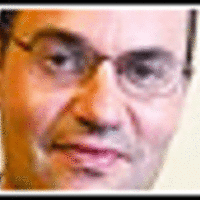Would you drink toilet water?
Loading...
Do you trust the engineers to develop new solutions for addressing society's challenges? UCLA has an excellent engineering school and thousands of young, sober students attend the engineering classes taking notes and hopefully thinking. Can these young people figure out how to take "dirty water" (think of your toliet after you use it) and transform it into drinkable water?
If the answer is yes, and if the public believes that the answer is yes then we have another strategy for adapting to climate change. Such recycled water offers us another way to increase our supply of scarce resources. In Climatopolis, I talk at length about how human ingenuity will substitute for those resources that Mother Nature will be less generous with supplying in our hotter future. I believe in directed technological change. We foresee a challenge, we see the benefits of coming up with a solution for the challenge and we hold a competition. If 100 entrants submit a new idea, the best idea in the set will emerge and it will be quite good and it will broadly diffuse and the idea's creator will become rich. Good dynamic incentives!
In the case of "toliet to the tap", there has been resistance to this approach before but now the NY Times reports that this gross out is easing. Why? Sociologists should work on this. If water prices rise, this would encourage water consumers to give the engineers the benefit of the doubt. Perhaps the experience of nations such as Singapore has taught the rest of us that such solutions can be effective. In this case, Singapore is a useful "green guinea pig".








